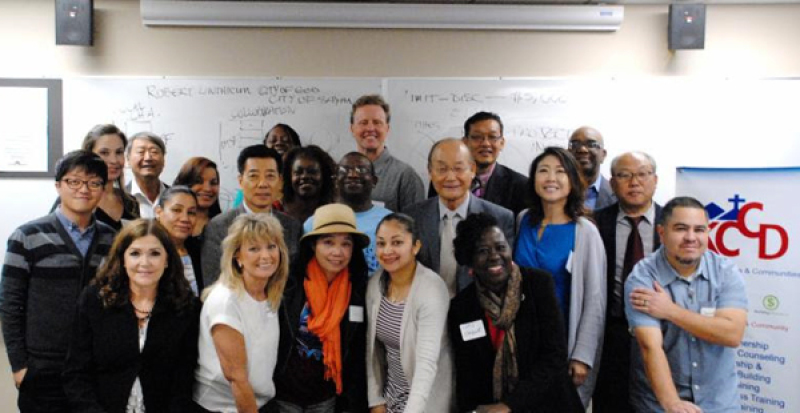
An opportunity for smaller churches to receive funding for new projects has been highlighted at a recent workshop hosted by Korean Churches for Community Development (KCCD).
The workshop, which took place at the Los Angeles Regional Office of Azusa Pacific University (APU), was attended by some 30 local church leaders of various ethnic backgrounds, including Korean American, Latino American, Caucasian American, and African American, and featured Brian Bakke, the president of The Mustard Seed Foundation. The organization, which was founded in 1983, provides grants to local churches and ministries for start-up projects.
"KCCD is pleased to have Brian Bakke from The Mustard Seed Foundation joining us," said Hyepin Im, the president and CEO of KCCD. She described Bakke as "a very humble individual and someone who reflects the light of Christ."
The Mustard Seed Foundation has funded over $93 million since its establishment. Through the funding that the organization has provided, various projects were kickstarted in Los Angeles and internationally, such as a recording studio that was started in partnership with the Salvation Army; a music school in Colombia; and a skate park in Guatemala City.
One particular project that was highlighted was the assignment of a campus pastor at a school in Montreal, Canada, that was known for "troubled students," as they were described. The presence and influence of the campus pastor led to positive differences and improvements within the school to the extent that the school district decided to hire a campus pastor for every school in Montreal.
In 2014, the foundation spent about $1.15 million in giving grants, and over $300,000 in scholarships. Among the projects that received grants included projects such as establishing a loan fund for rehabilitated sex workers and disabled individuals in a church in Kampala, Uganda; expanding a ministry in a prison for gang members and their families in Villa Nueva, Guatemala; building an evangelistic performing arts school in Bogota, Colombia; expanding an after school ministry in Compton, California; revitalizing a church in the South Bronx, New York; and establishing or expanding youth mentoring programs in various places all over the world.
"This is a unique grant where churches are solely funded," explained Im. "Churches do not need to show a track record or have a designated non-profit status, which lowers the bar for many churches to be able to apply."
Brian Bakke explained that the foundation, which was started by his uncle and aunt (Dennis W. Bakke and Eileen Harvey Bakke), aims to "support the work of the kingdom around the world."
"We desire to support dynamic projects that show the love of Jesus in word and action," the MSF states.
The foundation offers two types of grants for local church or ministry projects, Bakke said. The first is a discipleship grant, which funds a project for up to $5,000, while the second is an evangelism grant. This second type of grant requires a contribution from a local church, and the foundation matches that contribution. Some evangelistic projects have been funded up to $30,000. Some local church projects could also be funded for up to three years, but only the first year is guaranteed.
For both types of grants, a major qualification is that it must be requested for a new project, and the project must be located in one of the foundation's 'target cities,' which could be checked at the foundation's website.
For more information, visit msfdn.org.


















